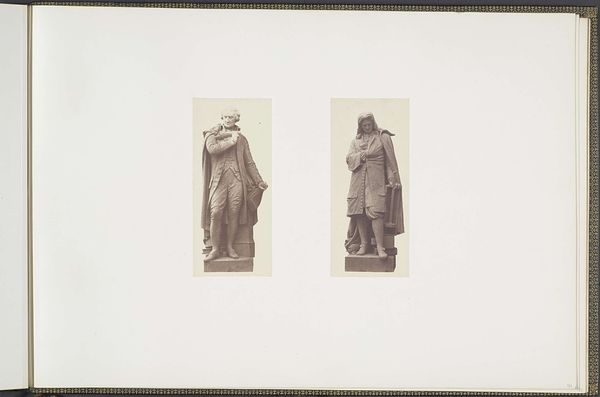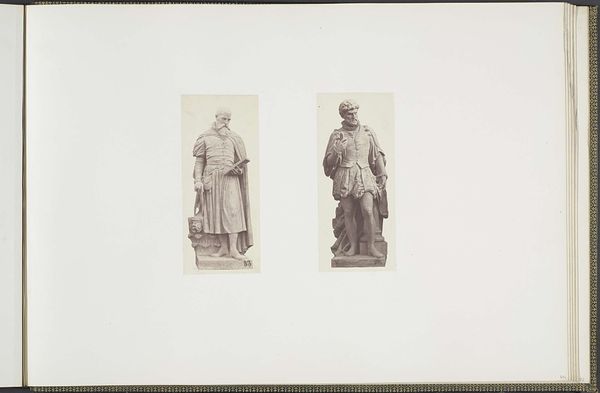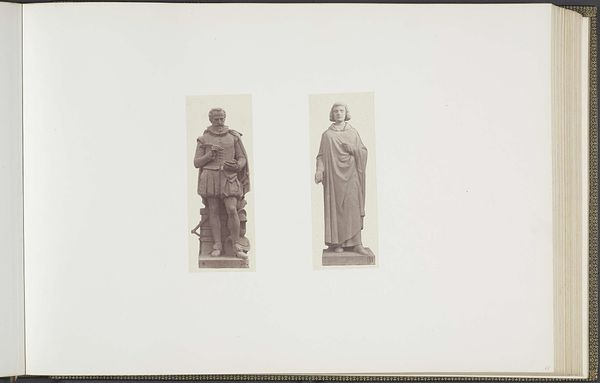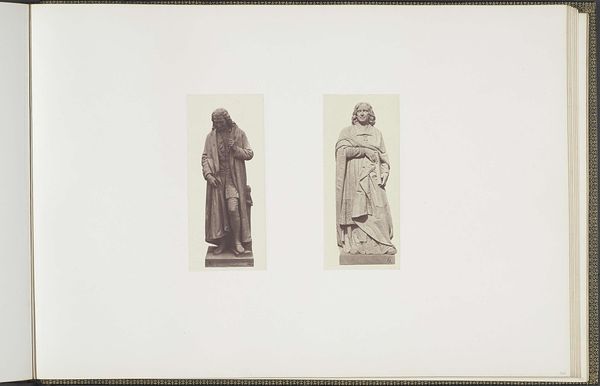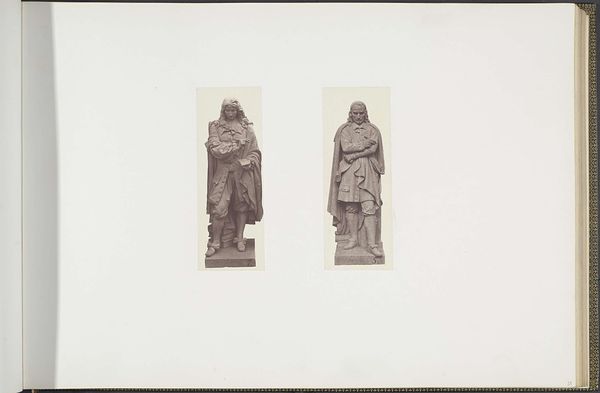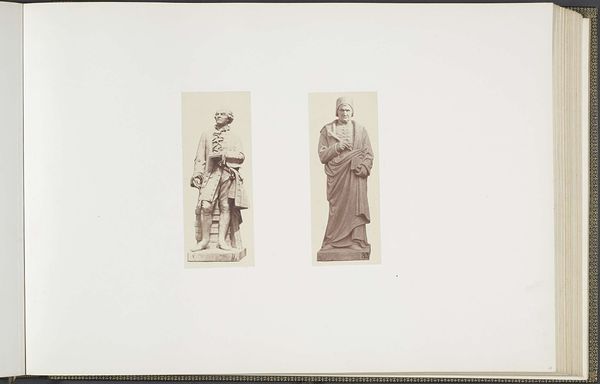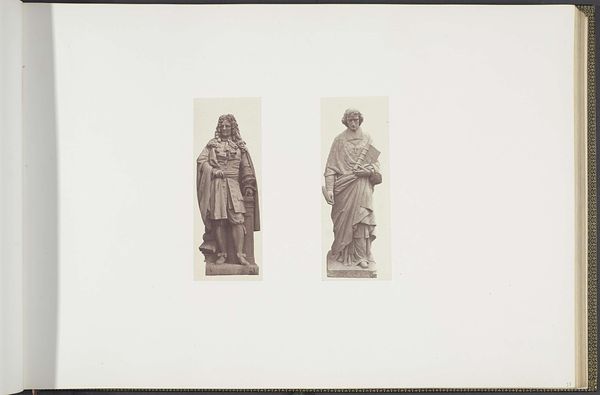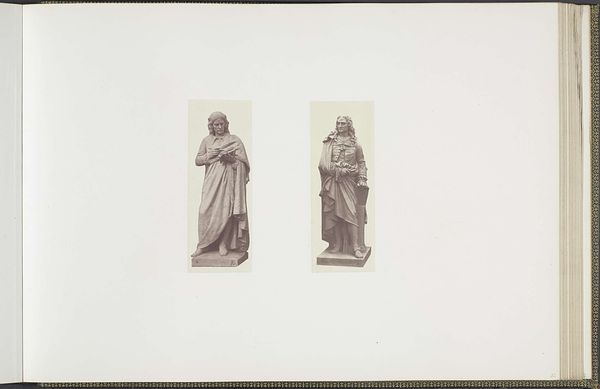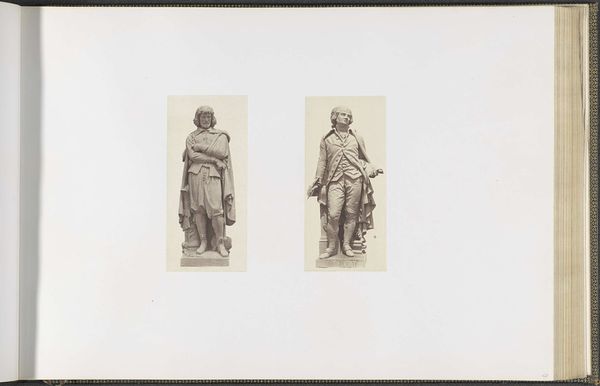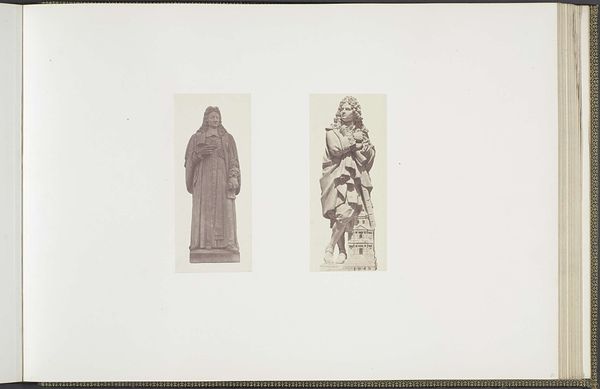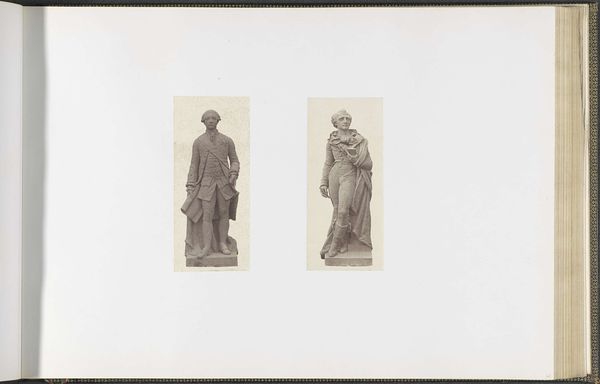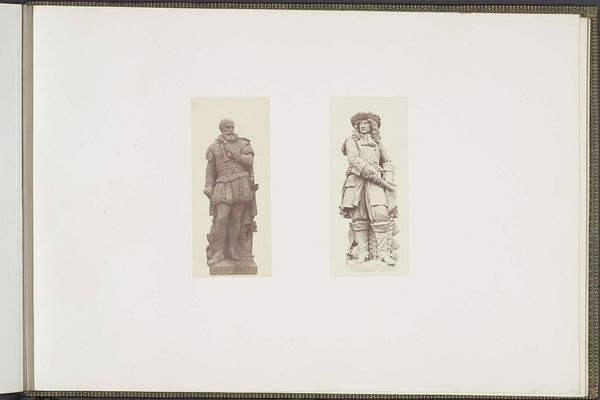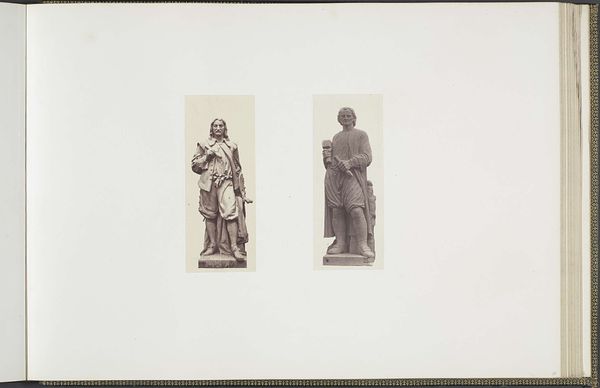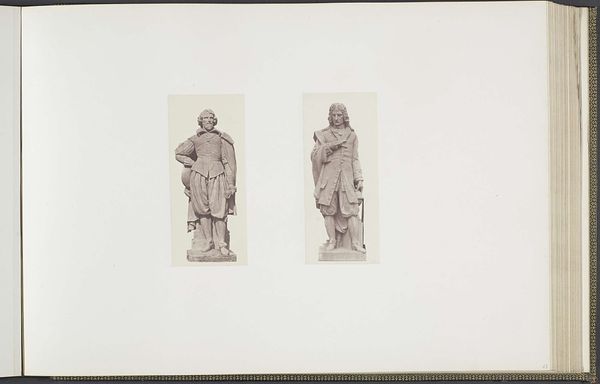
Gipsmodellen voor beeldhouwwerken op het Palais du Louvre: links "Molé" door Nanteuil en rechts "Turgot" door Pierre Travaux c. 1855 - 1857
0:00
0:00
edouardbaldus
Rijksmuseum
print, photography, sculpture, gelatin-silver-print
#
portrait
# print
#
photography
#
sculpture
#
gelatin-silver-print
#
academic-art
#
realism
Dimensions: height 378 mm, width 556 mm
Copyright: Rijks Museum: Open Domain
Edouard Baldus captured these plaster models destined for the Palais du Louvre in a photograph. On the left, we see "Molé" by Nanteuil, and on the right, "Turgot" by Pierre Travaux. Consider the symbolism inherent in these figures' garments and stances. Molé, adorned in judicial robes, embodies authority. Turgot, with his modern dress and poised gesture, represents enlightenment. These are not merely portraits; they are embodiments of powerful concepts. Images like these are echoes of earlier iconographies. The draped figure of Molé, in his dignified pose, recalls the ancient Roman senators, symbols of gravitas. Similarly, Turgot's enlightened stance harkens back to classical depictions of philosophers. Across time, the weight of history imbues these figures with a sense of shared cultural memory. The powerful subconscious connection to these archetypes underscores the non-linear trajectory of cultural symbols, constantly resurfacing and evolving.
Comments
No comments
Be the first to comment and join the conversation on the ultimate creative platform.
